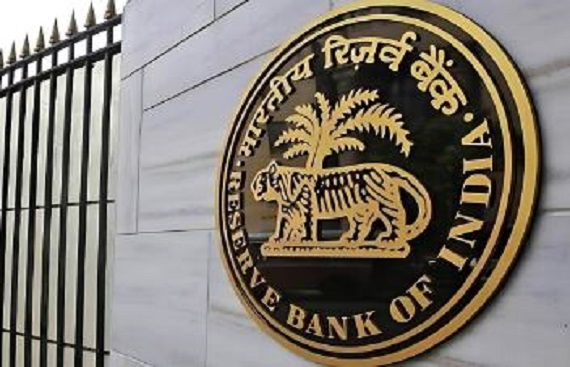RBI Seeks Nod to Let Banks Lend Rupees Abroad

- RBI has sought central government approval to allow rupee-denominated lending to overseas borrowers.
- Initial phase targets neighbouring countries: Bangladesh, Bhutan, Nepal, and Sri Lanka.
- Aims to promote the rupee's use in international trade and reduce reliance on foreign currency loans.
In a significant effort to globalize the rupee, the Reserve Bank of India (RBI) has approached the central government to seek authorization for domestic banks and their overseas branches to extend loans in Indian rupees to foreign borrowers, according to two individuals familiar with the situation. If approved, this unprecedented initiative would allow Indian banks to provide rupee-denominated credit internationally, starting with neighboring South Asian nations such as Bangladesh, Bhutan, Nepal, and Sri Lanka.
"This step is aimed at strengthening the rupee’s position in cross-border trade and making it a more acceptable currency globally”, according to report. The proposal, submitted to the finance ministry in April, suggests that successful execution in the region could lead to wider acceptance globally.
As per data from the Commerce Ministry, these four nations represented about 90 percent of India’s exports to South Asia in the 2024-25 period, amounting to nearly $25 billion. Currently, the foreign branches of Indian banks are limited to lending in foreign currencies, predominantly to Indian companies. The suggested change would enable banks to provide rupee liquidity directly for trade-related activities to non-residents on market terms, instead of relying on constrained bilateral currency swaps or government-supported arrangements.
"The objective is to reduce dependence on such government-backed mechanisms and create a commercial rupee market abroad", the report highlighted, referencing the RBI’s communication from April.
The central bank has also recently permitted non-residents to establish rupee accounts outside of India and has advocated for lifting restrictions on foreign banks with vostro accounts to invest in short-term sovereign debt, actions perceived as part of an overarching strategy for currency internationalization. A second individual pointed out that by facilitating more accessible rupee loans, the RBI aims to promote trade settlements in rupees and minimize currency exchange risks for partner nations. The government has received various requests from banks and financial entities to facilitate strategic infrastructure and trade initiatives, particularly following India’s currency partnerships with the UAE, Indonesia, and the Maldives, as well as the Special Rupee Vostro Accounts system with Sri Lanka and Bangladesh.
"If implemented, this policy could mark a transformational moment for the Indian currency," the source stated, emphasizing that it would align with India's aspiration to position the rupee as a stable and trustworthy currency in global trade and investment. No official response has been provided by the Finance Ministry or the RBI regarding this issue, as discussions continue to remain confidential.
The Reserve Bank of India (RBI) has approached the central government to authorize Indian banks and their branches abroad to loan money to foreign borrowers in Indian rupees, according to two sources. Once approved, banks in India could extend rupee-denominated assistance to countries worldwide, starting with the South Asian countries Bangladesh, Bhutan, Nepal and Sri Lanka.
Read More News :
RBI Sets Up Six-Member Payments Regulatory Board with Govt Nominees
Equitas Bank's Board to Consider Fundraising Proposal on May 30

